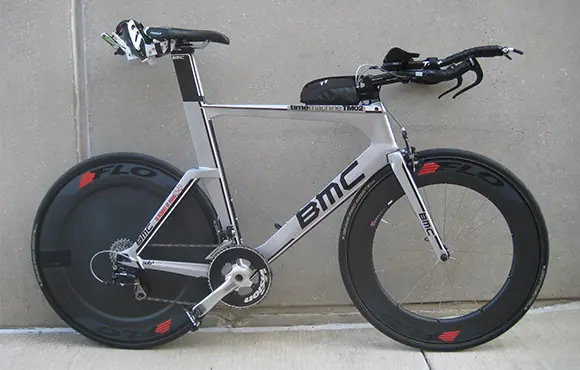While it's good to have a small dose of nervous excitement to help motivate you to complete the key workouts of your training plan, you don't want to be overwrought by the project.
Rather, the first thing to is to focus your thoughts and energy around the small tasks that comprise a good triathlon training program, making sure you first and foremost enjoy the process of being a triathlete.
Years ago, a friend of mine told me what the secret was to enjoying the arduous challenge of completing a full IRONMAN. "I'm not that worried about whether the race goes perfectly or not," he told me. "For me, it's all about the time I get to spend with my friends training together on weekends."
In other words, the race is the icing on the cake.
Be consistent.
1 of 6
Being consistent with small, steady workouts is going to transform your health and athletic capacity far more effectively than workouts that are massive but occasional. It's like taking first year chemistry in college: There's really no way to cram for the big final. Triathlon is like that.
Your body responds better to consistent workouts spread out over a few months. On days when your life is jam-packed and it becomes hard to get in a planned 1-hour workout, rather than junking the whole thing, see if you can just get in a 20 minute workout. Make consistency your mantra and your training will pay back surprising dividends.
Think of triathlon as one sport, not three.
2 of 6
This fact will help reduce the pressure you may be putting on yourself to prepare for a first triathlon. Swimming, biking and running appear to be quite a bit different, but in terms of a triathlon, you're generally using the same energy system (aerobic) to power each. So even though swimming looks absolutely nothing like person sitting on a bike, your training time in the pool does contribute a training effect to your ability to perform biking and running over long distances.
With this principle in mind, your training plan should be efficient in nature. As professional triathletes were the first to figure out in the 1980s, anyone who tries to combine complete training swimming, biking and running training programs into a schedule will suffer declining performance and burnout. What you want to find is the sweet spot of training--the minimum effective dose that will help your improve your health and performance capacity.
Focus on your weakest link.
3 of 6
One of the more common mistakes new triathletes make is that they gravitate toward a strength--say running--and avoid their weaknesses--perhaps the swim. Don't fall into this trap. Here's another mantra to keep in mind: You will make the greatest improvements as a triathlete (across the board) by prioritizing to make weaknesses strengths.
Train with others.
4 of 6
This may be the single most important tip. Triathlon can easily have a "Loneliness of the Long Distance Runner" feel to it. But it can and should have more of a team feeling to it. Having a bunch of friends to train with, at least on weekends, introduces a measure of accountability to everything.
So when the alarm goes off on Sunday morning, there's little risk you'll hit the snooze button when you know you're expected to meet up at a Starbucks for a bike ride. Being part of a group or team (or with a friend) triples the enjoyment of a race, as you're all in it together and inevitably the race is no longer just about you. You become mutually invested in crossing the finish line. It also makes the post-race storytelling a lot more fun.
Make it fun.
5 of 6
Fun was mentioned in the last entry. But it's so important it deserves its own. Triathlon is often described as a 'grueling' sport. It shouldn't be. If you train consistently and put effort into building weaknesses into strengths, the race serves more of a confirmation of your dedication--not some sufferfest.
To make triathlon a lifelong activity that builds health, self-esteem and gets you outside, look for ways to make it fun. Don't take it so seriously that you can't laugh off a bad training day or race day. And make a game of it! Challenge yourself with small, achievable goals that push you a little bit into a discomfort zone, but allow for the rich satisfaction that comes with crossing the finish line a little bit better than last time.






Discuss This Article